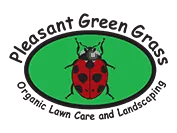The Potential Risks of Pesticides and Herbicides
The Environmental Protection Agency states: Many people believe that some pesticides are safe, while others are dangerous. Actually, the words “safe” and “dangerous” are misleading. Any chemical, including any pesticide, can pose risks to people, pets, or the environment.
The risk of a pesticide depends on two things, exposure (how much?) and toxicity (how poisonous?). The exposure is the amount you get in or on your body, or the amount that is released into the environment. The toxicity of a pesticide is measure of how poisonous it is to people or the environment. Even products that are low in toxicity can be hazardous if the exposure is high enough. Pesticides often contain more than one ingredient, and each one may have a different toxicity.
It’s well known that children, pets and wildlife are at greater risk of pesticide-related disease than adults. According to the EPA, “Children’s internal organs are still developing and maturing and their enzymatic, metabolic, and immune systems may provide less natural protection than those of an adult. There are ‘critical periods’ in human development when exposure to a toxin can permanently alter the way an individual’s biological system operates… Children’s, dogs and cats behaviors, such as playing on the floor or on the lawn where pesticides are commonly applied, or putting objects in their mouths (eating grass), increase their chances of exposure to pesticides.”
EXPOSURE: There are three types of exposure: dermal, inhalation, and ingestion. Dermal exposure is the most common type of exposure for the applicator since the skin is easily exposed when handling pesticides. Inhalation or breathing a pesticide into the lungs is less common, but is still a potential danger to the applicator. Ingestion occurs least frequently with careful applicators, but exposures do occur when users eat, smoke, or drink around pesticides or forget to wash after use.
TOXICITY: Acute toxicity refers to exposure to a single dose of a toxin which produces symptoms within a short period of time after the exposure. Acute toxicity from pesticides may be expressed as flu-like symptoms or a nervous system disorder while symptoms of chronic toxicity may be expressed in other forms. Chronic toxicity is used to describe the potential long term effects which could result from exposure to small amounts of a toxin over time. Chronic toxicity may impact different parts of the body than acute toxicity. Chemicals have long been feared as potential causes of forms of cancer, reproductive problems, and birth defects. There is little research to prove that these possible effects occur.
DO I TAKE THE RISK? The only way to resolve this argument at present is to recommend that pesticides and other chemicals be used as a last resort to other viable options. Luckily, Pleasant Green Grass has organic environmentally friendly and non-toxic alternatives for any synthetic.
(Originally published as “Exposure, Toxicity, and Risk of Home Pesticide Use,” by M.J. Weaver, Assistant Professor, PPWS, and Extension Coordinator, Chemical, Drug and Pesticide Unit, Virginia Tech, in The Virginia Gardener Newsletter, Volume 7, Number 6.) August 1996


